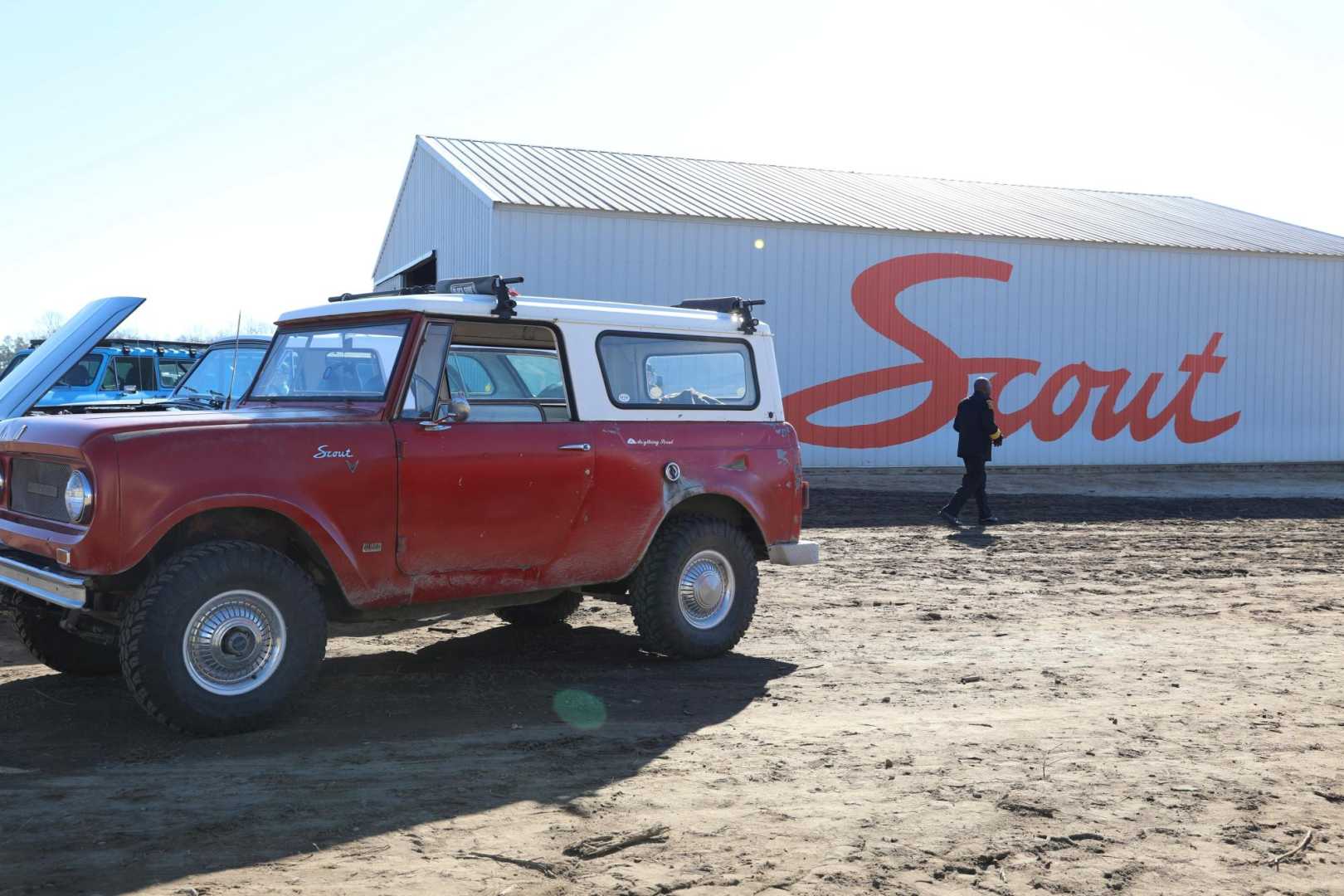Business
Scout Motors Pushes for Direct EV Sales Amid Legal Barriers

BLYTHEWOOD, S.C. (AP) — Volkswagen-backed Scout Motors is setting ambitious goals in the electric SUV sector by aiming to allow customers to purchase vehicles through a mobile app and manage everything from repairs to updates via digital means. However, these plans face significant hurdles in South Carolina, where the company is investing billions into its new auto manufacturing plant and a unique customer experience akin to BMW‘s test track.
Currently, South Carolina is among approximately two dozen states that require all new vehicles to be sold through dealerships, barring manufacturers from direct sales to consumers. This existing model complicates Scout’s vision of a streamlined, app-based shopping experience.
“In today’s world, where nearly everything can be purchased online, we need to modernize vehicle sales,” said Scout Motors CEO Scott Keogh during a recent press briefing. “Our model is about convenience and customer-centric experiences, but we’re impeded by laws that don’t reflect the realities of the digital economy.”
Under existing regulations, customers purchasing a Scout vehicle would need to travel to another state for service, as South Carolina also prohibits manufacturers from operating their own repair centers. This legal landscape poses a significant challenge for a company that aims to provide instant access to vehicle services via an app.
Opponents of direct sales argue that dealerships play an essential role in maintaining competition and consumer protection. “If all sales were conducted online, it could lead to inflated prices and less local economic investment,” stated Republican Sen. Larry Grooms, who oversees the Senate Transportation Committee. “Dealerships provide vital community ties and accountability.”
Scout Motors is actively campaigning to change these laws, seeking collaboration from lawmakers who may be receptive to the evolving retail landscape. “This isn’t just about us; it’s about the future of automotive sales in general,” said Scout Vice President of Growth Cody Thacker. “We believe consumers should have the freedom to purchase directly from the manufacturer.”
In 2000, former South Carolina Attorney General Charlie Condon expressed a belief that requiring manufacturers to go through dealerships contradicted free market principles. This opinion, although not legally binding, is often cited by advocates for direct sales.
Governor Henry McMaster has also expressed dual intentions: supporting local dealerships while advocating for the new business model proposed by Scout. “Consumer preferences are shifting, and with the success of online shopping, we should explore options that benefit everyone,” McMaster remarked at a recent groundbreaking event for the Scout facility.
The upcoming Scout plant in Blythewood, about 20 miles north of Columbia, is projected to begin operations by 2027, with an employment forecast of up to 4,000 jobs. The company is aiming to manufacture and sell 200,000 vehicles annually, tapping into a burgeoning electric vehicle market.
Scout Motors is also working on establishing an on-site test track for customers, enhancing the buying experience directly tied to its manufacturing plant. “Being able to test drive a Scout right after purchasing will be a unique selling point,” Thacker explained. “We want to create a seamless, engaging retail experience.”
Even with the challenges ahead, Scout seems committed to building its vision in South Carolina, believing it offers the most conducive workforce and economic environment for innovating within the automotive sector. If the laws remain unchanged, however, the company may need to shift sales strategies to other states that permit direct vehicle sales.












